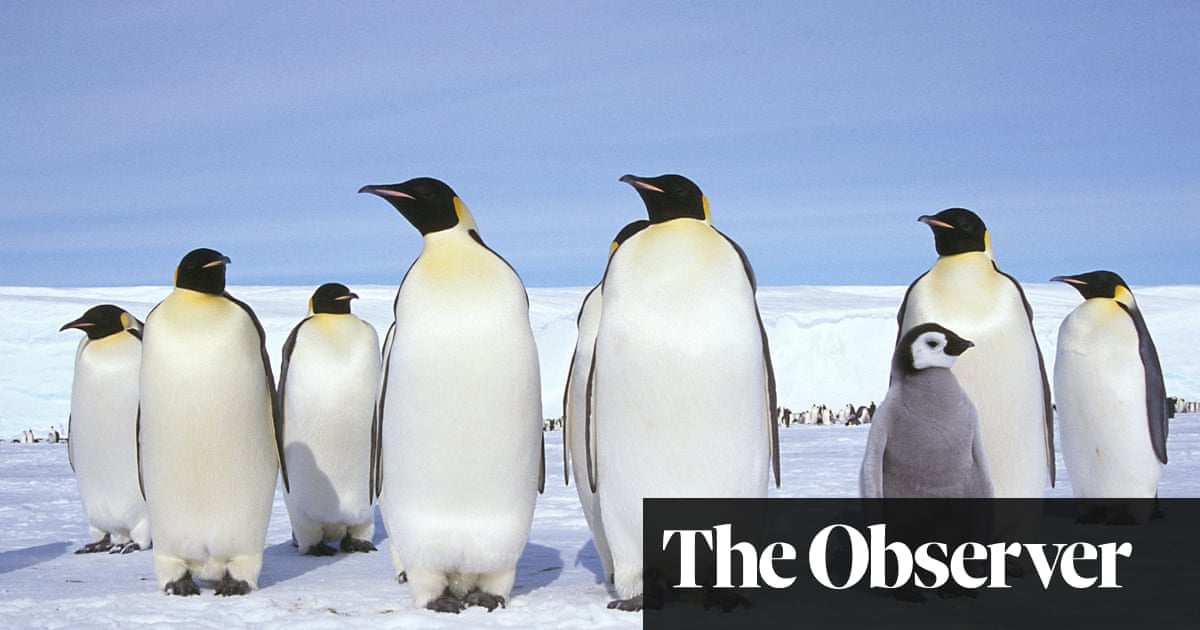‘Simply mind-boggling’: world record temperature jump in Antarctic raises fears of catastrophe

🌈 Abstract
The article discusses the alarming temperature rise and climate changes observed in Antarctica, which are having severe impacts on the continent's ecosystems and wildlife, particularly the iconic emperor penguins. It highlights the unprecedented nature of these events and the concerns they raise about the accelerating effects of global warming on the Antarctic region.
🙋 Q&A
[01] Unprecedented Temperature Rise in Antarctica
1. What was the remarkable event documented by scientists at the Concordia research station in Antarctica?
- Scientists recorded the largest jump in temperature ever measured at a meteorological center on Earth, with a rise of 38.5°C above the seasonal average, which is a world record.
2. How do the scientists and experts describe this temperature rise?
- They describe it as "simply mind-boggling" and "extraordinary and a real concern", as such a massive temperature leap in sub-zero temperatures is unprecedented.
- They note that if a similar 40°C rise occurred in the UK, it would be deadly for the population.
3. What are the factors blamed for this dramatic "polar heatwave"?
- Poleward winds are now carrying more warm, moist air from lower latitudes, including Australia, deep into the Antarctic continent.
- The exact reasons for these winds being able to penetrate so deeply into the continent's air space are not yet clear.
[02] Alarming Changes in Antarctica's Climate and Ecosystems
1. What other concerning changes have scientists observed in Antarctica besides the temperature spike?
- Glaciers bordering the West Antarctic ice sheet are losing mass to the ocean at an increasing rate.
- Levels of sea ice around the continent have plunged dramatically, after remaining stable for more than a century.
2. What do these changes suggest about the state of Antarctica's climate?
- Scientists believe there has been an "abrupt critical transition" in the continent's climate, indicating that Antarctica is now succumbing to the impacts of global warming.
- The Antarctic is now catching up with the Arctic in terms of the rate of warming, which is twice as fast as the global average.
3. What are the potential consequences of these climate changes in Antarctica?
- If all of Antarctica's ice were to melt, it would raise global sea levels by over 60 meters, inundating many islands and coastal regions.
- Even partial melting of the West Antarctic ice sheet could raise sea levels by 5 meters, causing significant damage to coastal populations worldwide.
[03] Impacts on Antarctic Ecosystems and Wildlife
1. How are the changes in Antarctica affecting its ecosystems and wildlife?
- The disappearance of algae under and around sea ice is having serious implications, as algae are a key food source for krill, which are a crucial part of the Antarctic food chain.
- The loss of sea ice has led to catastrophic breeding failures for emperor penguins, with over 90% of colonies projected to be wiped out by the end of the century.
2. What is the significance of the impacts on krill and emperor penguins?
- Krill play a key role in the carbon cycle, acting as a "conveyor belt" that transports carbon from the atmosphere to the deep ocean floor. Disruption of this system could have wider implications for global warming.
- The emperor penguin is an iconic species that is emblematic of Antarctica, and its decline is a tragic sign of the new vulnerability of the continent's ecosystems.
[04] Legal and Political Implications
1. What are the implications of these changes for the Antarctic Treaty system?
- The fact that Antarctica is undergoing alarming shifts in its ice cover, ecosystems, and climate is a clear sign that the environmental protection provided by the Antarctic Treaty is no longer being upheld.
- There is an argument that the signatories of the treaty could be challenged on legal and political grounds for knowingly polluting the atmosphere and causing these impacts on Antarctica.
2. How might this affect future discussions and negotiations at the UN?
- The article suggests that the challenges facing Antarctica will make for "some challenging meetings at the UN in the coming years" as the international community grapples with these issues.